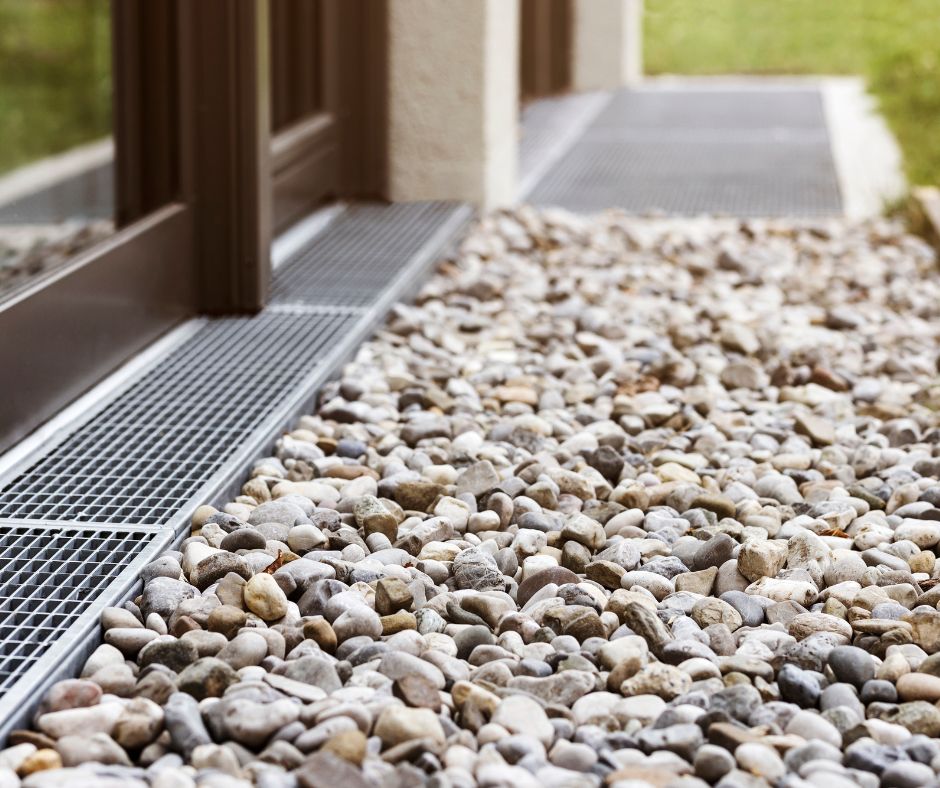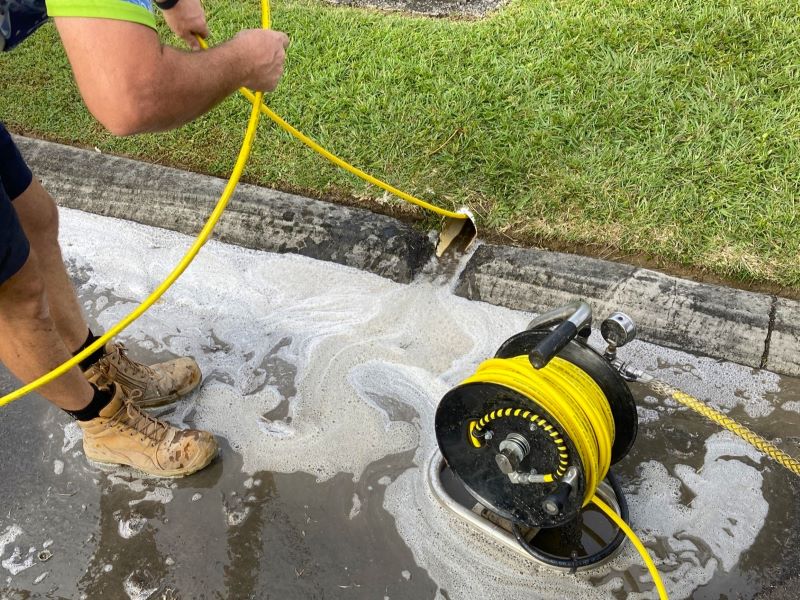Stormwater drainage systems are crucial for maintaining the integrity of your property by effectively channeling water away. These systems encompass various elements, including roof plumbing drainage, French drains, spoon drains, and strip drains. Their primary function is to minimize water damage while managing stormwater runoff efficiently. Regular maintenance is essential to prevent severe issues such as blockages and flooding. Neglect can lead to significant consequences, including costly repairs. Whether you’re facing clogged grates, roots invading your pipes, or other plumbing challenges, implementing a proactive maintenance strategy can help you avoid future complications, ensuring the protection of your home is prioritized.
This comprehensive guide aims to equip you with effective strategies for maintaining your drainage systems and outlines the necessary steps to take when faced with a blockage.

Essential Techniques for Maintaining Traditional Stormwater Drainage Systems
Traditional stormwater drains are vital components of most properties, designed to redirect rainwater away from structures, thereby preventing potential flooding. Over time, these systems can become obstructed by debris such as leaves, dirt, and branches, which severely impacts their functionality. To ensure that water flows freely and does not pool near your home’s foundation—where it can cause significant structural damage—regular maintenance is critical. By establishing a consistent maintenance routine, you can prolong the lifespan of your drainage systems and improve their efficiency, especially during heavy rainfall events.
Key Maintenance Strategies for Traditional Drains:
- Regularly clear the grates and gutters: Make it a habit to remove accumulated leaves and debris, particularly after storms, to prevent water flow obstructions.
- Monitor for pooling water: Stay alert for signs of water backing up or pooling near your drains, as these may indicate a blockage. Additionally, examine your garden for soggy areas that could signal underlying drainage issues that require attention.
- Engage professional services: Schedule routine inspections and cleanings with a qualified plumber, like Creek to Coast, to ensure that your drains operate at peak efficiency and to avoid future complications.
Best Practices for Maintaining French Drain Systems
French drains are specifically engineered to divert groundwater away from your home and retaining walls, making them invaluable for effective moisture management. However, these underground systems require consistent attention to prevent blockages. Comprising gravel and a perforated pipe, French drains facilitate efficient water diversion, yet they can become clogged with dirt, sediment, and invasive roots over time. To ensure their longevity and operational efficiency, it is essential to implement proper maintenance practices that prevent costly repair issues down the line.
Critical Maintenance Strategies for French Drains:
- Watch for slow drainage: If you notice that water is not draining as it should, this may indicate a clog requiring immediate attention to prevent further complications.
- Regularly flush the system: Periodic flushing with water can help eliminate potential blockages before they escalate into severe drainage problems.
- Seek professional cleaning services: If you observe sediment buildup or root intrusion in your French drains, reach out to Creek to Coast for a thorough cleaning, possibly using hydro-jetting tools to effectively clear the pipes or inspection points.
Effective Maintenance Practices for Spoon Drain Systems
Spoon drains are designed with shallow, curved channels that efficiently guide surface water away from driveways, patios, and other paved surfaces. Although they typically require minimal upkeep, it is crucial to tend to them regularly to avoid clogging. Failing to clear these channels can lead to water pooling on your property, posing risks of damage over time. By adopting simple yet effective maintenance habits, you can ensure your spoon drains remain functional and efficient, safeguarding your property from potential water-related issues.
Guidelines for Proper Spoon Drain Maintenance:
- Keep the channel debris-free: Regularly sweep out leaves, dirt, and other materials to maintain smooth water flow. Utilizing a high-pressure washer can significantly enhance thorough cleaning.
- Check the slope: Ensure that the slope of the spoon drain is intact and functioning as intended, as gravity is critical for directing water away.
- Inspect for damage: Regularly check the drain for cracks or breaks, which may occur due to vehicle traffic and may necessitate repairs.
- Seek professional evaluation: If you experience poor drainage, it is advisable to contact Creek to Coast for a professional assessment to implement necessary adjustments or repairs to restore optimal function.
Essential Steps to Maintain Linear Drainage Systems
Linear drains, commonly referred to as trench drains, are strategically installed in areas like driveways and pool decks to capture surface runoff efficiently. While they effectively prevent water accumulation, they can collect debris over time, making regular cleaning necessary to sustain their performance. Establishing a consistent cleaning schedule is critical to avoiding blockages that could lead to water pooling and damage in surrounding areas, ensuring their functionality and longevity.
Maintenance Recommendations for Linear Drains:
- Frequently clean the grates: Regularly inspect the grates for any buildup of dirt, leaves, or debris that could obstruct water flow, and remove these blockages as necessary.
- Regularly flush the system: Running water through the drain routinely helps to ensure it flows correctly and that no blockages are present.
- Consider professional maintenance: If you encounter backups or slow drainage, do not hesitate to reach out to Creek to Coast for expert cleaning services to effectively remove deep clogs and debris.
Immediate Actions to Address Blocked Drain Issues
Even with diligent maintenance, blockages can still arise in any drainage system. Signs such as water pooling, slow drainage, or overflowing grates indicate that immediate action is required to prevent more severe complications. By understanding the common causes of blockages, you can quickly identify the issue and take appropriate measures to effectively resolve it.
Common Blockage Causes to Consider:
- Tree roots: Roots can invade underground pipes, creating significant blockages that disrupt water flow and drainage.
- Accumulated debris: Leaves, dirt, and other environmental materials may build up over time, obstructing water passage through your drainage system.
- Pipe damage: Broken or crushed pipes can severely restrict water flow, necessitating immediate professional intervention.
When faced with a blockage, it’s advisable to consult a professional plumber like Creek to Coast. They utilize advanced tools, including high-pressure water jetters and CCTV cameras, to accurately diagnose and resolve the issue. Attempting to clear a blockage independently may worsen the problem, especially if the pipes are damaged or roots have infiltrated the system.

Holistic Strategies for Maintaining Diverse Stormwater Drain Types
To ensure your stormwater management systems—whether traditional, French, spoon, or linear drains—continue to operate effectively, consider implementing the following comprehensive strategies:
- Schedule annual inspections and cleanings with a licensed plumber like Creek to Coast. This proactive approach facilitates the removal of debris and helps identify potential problems before they escalate into major issues.
- Monitor water flow: After heavy rainfall, inspect your drains for pooling or slow drainage, which could indicate underlying issues that need addressing.
- Install gutter guards and grates to prevent larger debris from entering your drains, thereby reducing the frequency of blockages and maintenance needs.
- Maintain distance from plants and trees: Roots from nearby trees can invade and obstruct pipes, making it essential to keep vegetation at a safe distance from your stormwater systems.
Consistent plumbing maintenance and prompt responses to drainage concerns are crucial for safeguarding your property against water damage and ensuring that your drainage systems operate smoothly and efficiently. Should you notice any signs of blockage, do not hesitate to contact Creek to Coast for expert assistance in keeping your stormwater drains functioning seamlessly!
The Article: Stormwater Clarity: Essential Drain Maintenance Tips first appeared on https://writebuff.com.
The Article Drain Maintenance Tips for Stormwater Clarity Was Found On https://limitsofstrategy.com


I really appreciate how you highlighted the importance of regular maintenance for stormwater drainage systems. It’s so easy to overlook something like this until it becomes a huge problem. I learned this the hard way a few years ago when a blocked French drain led to water pooling in my basement after a heavy rain. The repairs were a real headache—and costly!
It’s great to hear your perspective, and I can imagine how frustrating that situation must have been. Water damage can feel like a sneaky intruder; one minute everything seems fine, and the next, you’re faced with an unexpected and costly repair. Regular check-ups on drainage systems might not seem thrilling, but they can absolutely save us from those tough lessons.
I completely relate to what you’re saying about water damage feeling like a sudden unwelcome guest. It’s one of those situations that can really throw you off guard, and the stress of dealing with repairs can be overwhelming. I recently had a friend who’s experienced a similar issue with a leaky roof, and it really highlighted how important those preventative measures are.
You’re spot on about water damage feeling like that unexpected visitor that just won’t take the hint. I can imagine how tough it must have been for your friend with the leaky roof. It’s fascinating how a single issue can snowball into such a big problem if we don’t keep an eye on things, right?
“I’m glad you can relate! It’s true that prevention is key—if you’re interested, check out this resource for tips on safeguarding your home against water damage.”
https://cnisclub.org/octopus
I really appreciate how you’ve outlined the importance of stormwater drainage systems in maintaining property integrity. It’s easy to overlook these systems until we’re faced with severe weather or unexpected flooding, but understanding their components and functions can make a huge difference in how we manage our properties.
You bring up a crucial point about stormwater drainage systems. It’s easy to take them for granted until a heavy rain hits and we realize just how vital they are. Managing our properties effectively means being proactive rather than reactive.